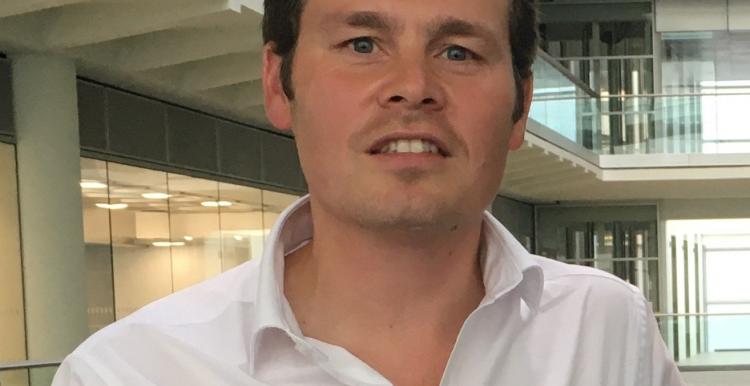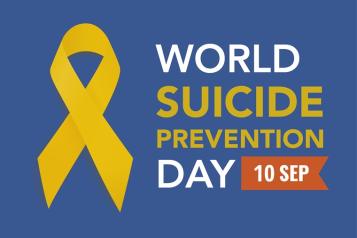For World Suicide Prevention Day, Kingston's Time to Change Champion, Fabian, shares his story

Facing and fighting his fears is a constant battle, he shares his story and the tips he uses to cope, in the hope it might help others.
I’m planning to take my life. A suicide note to my wife and nine-month-year-old daughter sits on my lap. This is it, this is what it has come down to. What a loser and waste of space I am.
This is how I found myself 12 years ago, aged 32, in 2008. It feels surreal writing it now, but thankfully I’m still here to tell the tale. So how and why did it come to this and what lessons have I learned?
Well, I’ve suffered from anxiety and depression from an early age. We have a history of mental illness in the family and it’s a constant battle. The usual sequence of events for me is that I start feeling anxious about something - nine out of 10 times it’s triggered by work - I quickly and completely lose confidence in myself and then it spirals into a deep depression.
I also suffer from what I’ve now learned is called the ‘imposter syndrome’ where I feel like a fraud who’s going to be found out at any moment. Despite 19 years’ experience in my work, I constantly live in fear that someone will call me out and say: “This guy is absolutely hopeless at his job. You are so busted!”
That overwhelming, all-consuming, debilitating fear has led me to want to take my own life on several occasions. And what stops me? Quite simply, the love I have for my wife and my daughter.
The philosopher Friedrich Nietzsche said: “He who has a why to live can bear almost any how”. I’ve realised that we all have a ‘why’ - mine’s my family – so if you can find your purpose and keep it in mind, you can live a much happier, more peaceful life.
Suicide is often shrouded in silence, shame and stigma. This can make it incredibly difficult to talk about any suicidal thoughts you might be having to even your family or closest friends.
A real turning point, for me, came in 2018 when I took the step to speak openly to my local GP, who really took the time to listen to me. I was very resistant to taking any kind of medication but the doctor made a helpful comparison, saying, “If you had a physical illness like diabetes, you wouldn’t think twice about taking insulin.” He also pointed out that half the town was taking some sort of medication. So, I decided in the end to try an anti-depressant which helped lift me out of the depression, ease my anxiety and enable me to start helping myself.
Since then, I’ve explored a wide range of tools and techniques - from mindfulness, running and reading to yoga, boxing and ‘cold therapy’ (that didn’t last long!) - to help look after my mental health. Some things work, some don’t. The point is to be open to anything that might help you and to have as many weapons in your armoury as possible.
I hope this story helps you - together, we can fight this illness and show everyone just how strong we really are!
Fabian's top tips:
- You’re only human and you’re an amazing human. Be kind to yourself and treat (and speak to) yourself as you would to a good friend.
- You’re so not alone. One in four people in the UK will experience a mental health problem each year.
- It’s good to talk. However hard it feels and however much you just want to shut yourself away from the world, try and find someone - a partner, friend, family member, GP, professional counsellor, the Samaritans - who will listen and not judge, and share with them what you’re going through. You will feel loads better.
- You’re not weak - quite the opposite - you’re incredibly strong to cope with what you’re going through. As the author Michael Rosen wrote, “You’re sad, not bad”. Give yourself a break and tell that inner critic who basically lies, constantly, to shut up! I find that mindfulness, in particular, really helps me identify destructive thoughts and weakens their power over me.
If you have been affected by this story, you can call the Samaritans 24-hour helpline on 116 123, email jo@samaritans.org or visit www.samaritans.org


